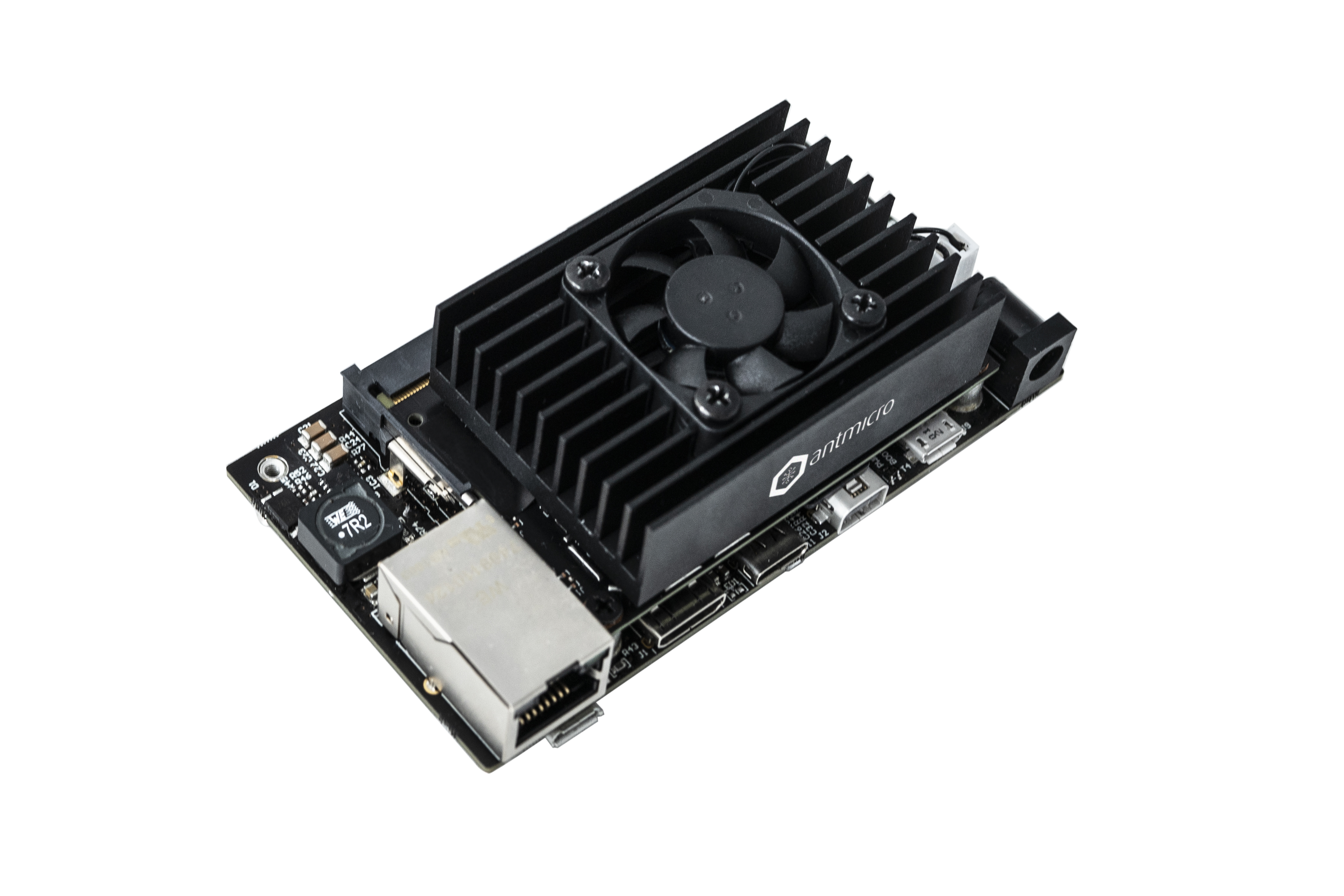Copyright (c) 2020-2021 Antmicro
This repository contains open hardware design files for a baseboard supporting the NVIDIA Jetson Nano, Xavier NX and TX2 NX SoMs. It's been created by Antmicro, a custom hardware, software and AI engineering company and NVIDIA's Jetson ecosystem partner.
The board can be interfaced with MIPI CSI-2 video devices through a unified Flexible Flat Cable (FFC) connector, supporting up to 4 sensors in a 2-lane configuration or 3 sensors in a 4-lane configuration.
Please refer to the Jetson Nano OEM Product Design Guide for more details regarding the supported CSI lane mappings.
The baseboard, its custom variants designed by Antmicro per customer's specification, and essential accessories can be purchased from Capable Robot Components.
The main repository directory contains the Altium PCB project file, the Outjob file, LICENSE and README. The remaining files are stored in the following directories:
Altium- contains the design files of the latest (1.4.7) revision prepared in Altium DesignerImages- contains graphics for this README3DModels- contains files defining the mechanical model of the assembled board
- Jetson Nano / Xavier NX / TX2 NX SO-DIMM connector
- Gigabit Ethernet RJ45 connector
- Micro USB debug connector
- USB-C DFP (Host) port
- Mini HDMI video output interface
- Mini DisplayPort video output interface
- 2x 50-pin FFC connectors exposing up to 4 MIPI CSI-2 camera interfaces
- M.2 (key M) connector exposing PCIe x4 interface
- RTC battery backup
- EEPROM for storing board ID/SN
The PCB project files were prepared in Altium Designer 14.1.
The picture below presents a general layout of the PCB with marked I/O interfaces.
The board can be produced and assembled using the provided design files. Please take a look at the mechanical layers for more information regarding the PCB stackup recommended for fabrication. The board can be powered by a voltage in the 6-36VDC range. It is recommended to use a 12V 2A DC supply to power the board. The board has an integrated power sequencer that starts the module automatically right after applying power supply.
The baseboard's I/O interfaces are supported in the standard Linux for Tegra (L4T) BSPs provided by NVIDIA for Jetson Nano / Xavier NX / TX2 NX. The BSP should work with the Open Source Jetson Baseboard out of the box. However, to use the baseboard with various cameras and other accessories you may need to make modifications. If you plan to use the board with Allied Vision Alvium image sensors, there is a linux-patches directory, which contains patch files that add support for the Allied Vision cameras for this baseboard with the Jetson Nano NX module.
The patches are named with the L4T release and can be applied to corresponding branches of the Linux repository released by Allied Vision.
Antmicro's services involve BSP development so you can hire us to the necessary modifications for you.
You can use the USB OTG interface connector to upload a BSP image to a SoM inserted into the baseboard.
Most of the debug messages are provided through the serial console.
The board includes an FTDI chip providing the UART interface to the host PC.
Please refer to the schematic sheets for more details.
The default debug UART channel is accessible through /dev/ttyUSB0 (assuming that there are no other FTDI units connected to your PC).
The default baudrate for serial debug connection is 115200 baud with an 8-bit transmission, 1 stop bit and with no flow control.
The latest revision of the PCB includes the following changes and amendments:
- Introduced an 8-layer PCB stackup for a better separation of PCIe lanes
- Rotated the M.2 connector by 180 degrees to keep it away from the on-board DC/DC
- Changed the stacking height of the M.2 connector
- Simplified the M.2 supporting circuitry
- Exposed the
CSI-GandPCIE1interfaces on the Jetson Xavier NX - Updated FAN control circuitry
- Changed GPIO assignment for camera-triggering signals
- Optimized board cutout for the DisplayPort connector
- Fine-tuned selected footprints to improve the reliability of the reflow soldering
- Changed power sequencing of the on-board DC/DC converters
- Fixed
TPD8S009footprint - Removed MicroSD card socket
- Updated
USBC_VBUScontrol circuitry - Added EEPROM for SN/ID storage
Please check the releases for a brief summary of major changes introduced in previous revisions.

